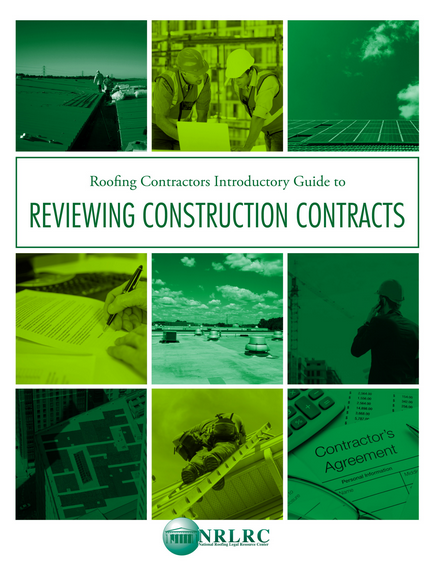If your company has recently been awarded a contract for construction work, congratulations! In finding the work and having your bid accepted, you’ve demonstrated your capability to efficiently furnish high-quality labor and materials. At this point, many contractors have no choice but to immediately proceed with reviewing the schedule, scope of work and specifications, as well as preparing to mobilize labor to meet time-related demands. With this flurry of activity, many contractors forget to reduce the agreements to writing, fail to sign written agreements, or—worse—sign contracts without reading all the terms and conditions. The following tips and information can help busy contractors prevent common pitfalls from occurring and offer guidance for those mired in contractual disputes.
1. Put everything in writing.
Most construction professionals would agree written contracts are essential for projects with new or relatively unknown clients, but many feel that long relationships with clients and mutual trust and respect eliminate the need for written contracts. In fact, some fear written agreements have the potential to offend other professionals with whom they have a positive past working relationship. However, written contracts are essential in today’s economic and legal climate and can be seen as a way to honor the mutual respect many feel toward past and repeat clients. The primary purpose of a contract is not necessarily to give one party an advantage over the other. Instead, the goal is for both parties to clearly delineate each party’s expectations from the other to avoid unwanted surprises. If both parties are aware of the duties, responsibilities, risks and rewards before the project commences, there will be less potential for disputes and misunderstandings than there will be without a written agreement.
2. Know that complying with licensing statutes is essential to preserving contract rights.
North Carolina and South Carolina, like most states, prohibit unlicensed contractors from enforcing the provisions of their contracts if a license was required for the contract in question. Additionally, North Carolina case law requires contractors to strictly comply with N.C. General Statutes Chapter 87, which contains specific provisions about the name in which contractors can lawfully hold a license. Failure to comply with the statutes will prevent contractors from enforcing the provisions of their construction contracts.
South Carolina has taken an even stricter approach. Pursuant to S.C. Code Ann. §40-11-370, it is unlawful to engage in construction under a name other than the exact name on the license issued to the contractor (if a license is required for the work), and an entity that does so may not bring an action in law or in equity to enforce the provisions of a contract. This means even a duly licensed contractor can be barred from any recovery for breach of contract, including lien and bond lawsuits, if the contractor’s name on a written contract is even slightly different from the contractor’s name on the contractor’s license. Although some states have case law adopting this principle, South Carolina appears to be the only state that has codified the rule. Therefore, it is imperative a contractor’s name on the contract is the exact same name as the name on any contracting license required for the work in question.
3. Assume no damage for delay clauses are enforceable.
Both North and South Carolina courts generally enforce “no damage for delay” clauses, which specify owners will not be liable for a general contractor’s damages arising from delay, disruption or interference—even if the owner is responsible. General contractors can enforce these provisions against subcontractors or suppliers, too. Often, the contract will provide that additional time—contingent on written approval by the owner, architect or general contractor—is the sole remedy for delay.
South Carolina courts have recognized some exceptions to these clauses’ enforceability, however. The South Carolina Supreme Court held in Williams Electric Co. v. Metric Constructors Inc. (1997) delay caused by fraud, misrepresentation or bad faith; delay caused by active interference; unreasonable delay giving rise to abandonment of the contract; or delay caused by gross negligence can give rise to recoverable damages.
Similarly, North Carolina courts have overlooked “no damage for delay” clauses and allowed parties to recover damages arising from delays that constitute abandonment of a contract; active interference with the contract; and delays resulting from fraud, bad faith or arbitrary action. Additionally, damages from delays not reasonably contemplated by the parties are recoverable.
Many delay provisions are accompanied by notice requirements, too. Most contracts that do allow parties to recover for delay related damages require the party claiming damages to give notice of the delay, or the source of the delay, as soon as they are aware of it. What constitutes notice and reasonable knowledge of the delay can be open to interpretation. Ambiguity is best avoided through specific provisions in the contract.






Be the first to comment on "Five Ways Construction Professionals Can Protect Their Contractual Rights and Avoid Misunderstandings"